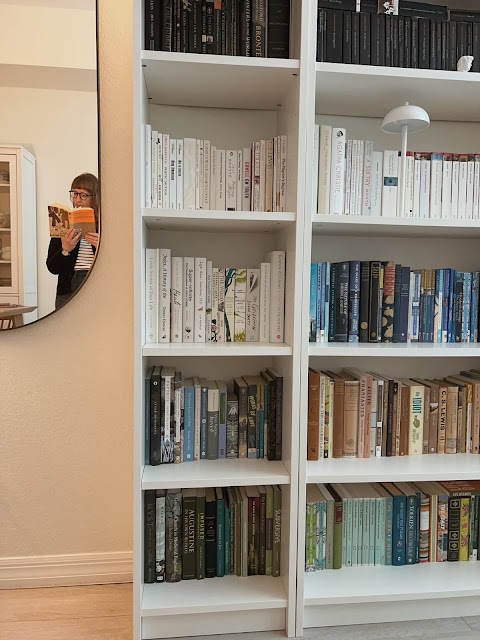This is not a crazy tale - just a little tale of finding two books in my town whilst perusing used books and what came of them next. It's a typical summer day. Intense heat from the sun starts early, as soon as it's above the horizon. Long days melt into the repetitive nature as it cascades over many months. Occasionally I venture out - daring to defeat the heat with a/c in the car and dashing into a building - preferably one that holds books in it. Recently I took such ventures and was rewarded. The best thing about used bookstores is that you will never be able to predict what you can find, and sometime you are met with some amazing treasures.
Oxford, by James Morris was sitting there on the shelf waiting for me. The name of Oxford of course caught my eye, in the history section, which I might not always peruse in great detail. This time I did, and I pulled this nice hardback off the shelf. It's a Faber book, published in 1965. Several sections of black & white photos accompany the book. I barely had to flip through anymore, it was coming home with me.
The last few days have been my Oxford days. And let me say, they have been pure enjoyment whilst reading this book. I may not agree with every observation he wrote, but Morris was such fun. He covered historical aspects of Oxford, the weather, the atmosphere, his observations (of course from the perspective of 1965 or so), and it was all so fascinating. Perhaps because it's my favourite city I have more interest in the general history, but as an added bonus, every building and street he walked by, visited and discussed I was familiar with. Which meant that I could picture where he was talking about and learn something about it I might not have known.
The old photos are so fun to see, with the reminder of how little has changed in central Oxford, other than the modern cars, more bicycles and buses, and thankfully, better facilities in the buildings that were not always there, even in the 1960s. But for centuries this spired city has looked timeless.
The Child From the Sea, by Elizabeth Goudge was sitting forlornly at the bottom shelf at the end of the $0.50 special section, almost too easy to gloss over and miss. But something caught my eye. The name Goudge is not one that I see often. This was a book I haven't read yet, and it was in my shopping cart online for along time, then I simply saved it for future and forgot to ever order it. What a delight to add another Goudge book to my library, and this one I am just cracking open - fresh and in great condition from 1970. It's historical fiction written before the genre of historical fiction took a very popular turn in recent years, tracing back to the English Civil war and the (secret) wife (Lucy) of soon to be Charles II.
The tale of these two books ends happily. For, one book has been read and now joins a great host of books hanging out on my tall shelves, whilst the other book is in my reading stack, getting to be opened and read as a book should be. They are very happy and content.



